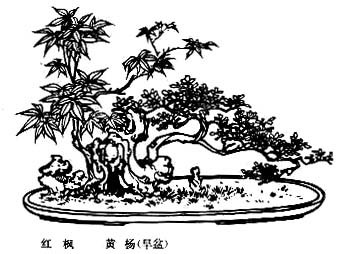論
語
Lun Yu 
 – The Analects of Confucius
– The Analects of Confucius
The Master discusses with his disciples and unveil his preoccupations with society. Tr. Legge (en), Lau (en) and Couvreur (fr).
Lunyu III. 22. (62)
Confucius's opinion of Kwan Chung:– against him.
1. The Master said, "Small indeed was the capacity of Kwan Chung!"
2. Some one said, "Was Kwan Chung parsimonious?" "Kwan," was the reply, "had the San Kwei, and his officers performed no double duties; how can he be considered parsimonious?"
3. "Then, did Kwan Chung know the rules of propriety?" The Master said, "The princes of States have a screen intercepting the view at their gates. Kwan had likewise a screen at his gate. The princes of States on any friendly meeting between two of them, had a stand on which to place their inverted cups. Kwan had also such a stand. If Kwan knew the rules of propriety, who does not know them?"
Legge III.22.
The Master said, 'Kuan Chung was, indeed, a vessel of small capacity.'
Someone remarked, 'Was Kuan Chung frugal, then?'
'Kuan Chung kept three separate establishments, each complete with its own staff. How can he be called frugal?'
'In that case, did Kuan Chung understand the rites?'
'Rulers of states erect gate-screens; Kuan Chung erected such a screen as well. The ruler of a state, when entertaining the ruler of another state, has a stand for inverted cups; Kuan Chung had such a stand as well. If even Kuan Chung understood the rites, who does not understand them?'
Lau [3:22]
Le Maître dit : « Que Kouan Tchoung a l'esprit étroit ! » Quelqu'un demanda si Kouan Tchoung était trop parcimonieux. Confucius répondit : « Le chef de la famille Kouan a élevé à grands frais la tour de San kouei1 ; dans sa maison aucun officier n'est chargé de deux emplois. Comment pourrait-on le croire trop économe ? – Mais, reprit l'interlocuteur, s'il fait tant de dépenses, n'est-ce pas parce qu'il connaît les convenances ? » Confucius répliqua : « Les princes ont une cloison devant la porte de leurs palais2 ; le chef de la famille Kouan a aussi une cloison devant sa porte. Quand les princes ont une entrevue amicale, ils ont une crédence sur laquelle on renverse les coupes ; Kouan Tchoung a une crédence semblable. Si le chef de la famille Kouan connaît les convenances, quel est celui qui ne les connaît pas ? » Kouan Tchoung, nommé I ou, grand préfet de Ts'i, aida Houan, prince de Ts'i, à établir son autorité sur tous les grands feudataires. Il avait l'esprit étroit, il ne connaissait pas la voie de la grande étude des hommes saints et des sages. (Tchou Hsi)
Couvreur III.22.
b. Ada orang bertanya, "Bukankah itu disebabkan Guan-zhong sangat hemat ?"
Nabi menjawab, "Guan-zhong mempunyai panggung San Gui, dan mempunyai banyak pegawai yang khusus mengerjakan satu tugas saja. Bagaimanakah ia dapat dikatakan hemat ?"
c. "Tetapi bukankah itu menunjukkan Guan-zhong banyak mengerti Kesusilaan ?"
Nabi menjawab pula, "Para raja muda membangun tembok di muka pintu gerbang istananya, Guan-zhong juga membangun tembok di muka pintu rumahnya. Para raja muda membangun panggung untuk menerima raja muda lain yang datang berkunjung ke istananya, Guan-zhong membangunnya juga. Maka, kalau Guan-zhong dikatakan mengerti Kesusilaan, siapakah yang tidak amengerti Kesusilaan ?"

The Analects of Confucius – Lun Yu III. 22. (62) – Chinese on/off – Français/English
Alias the Lunyu, the Lun Yü, the Analects, les Entretiens du maître avec ses disciples.
The Book of Odes, The Analects, Great Learning, Doctrine of the Mean, Three-characters book, The Book of Changes, The Way and its Power, 300 Tang Poems, The Art of War, Thirty-Six Strategies
Welcome, help, notes, introduction, table.
Index – Contact – Top























